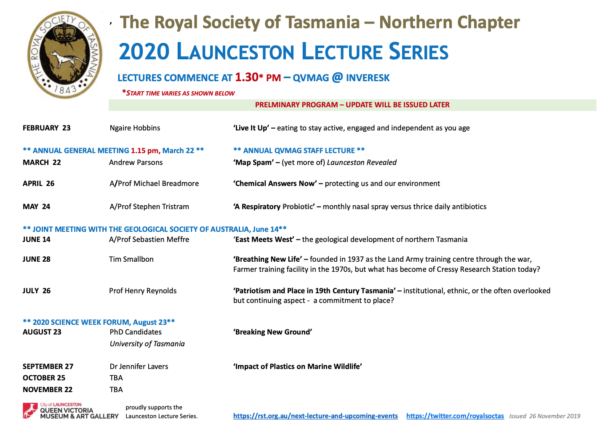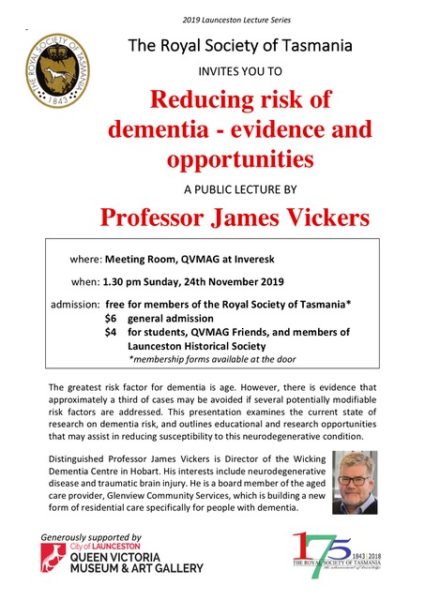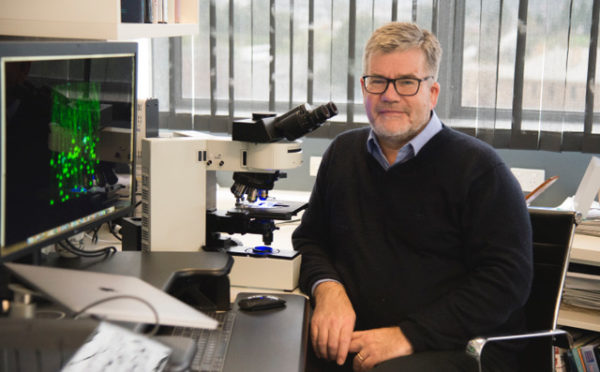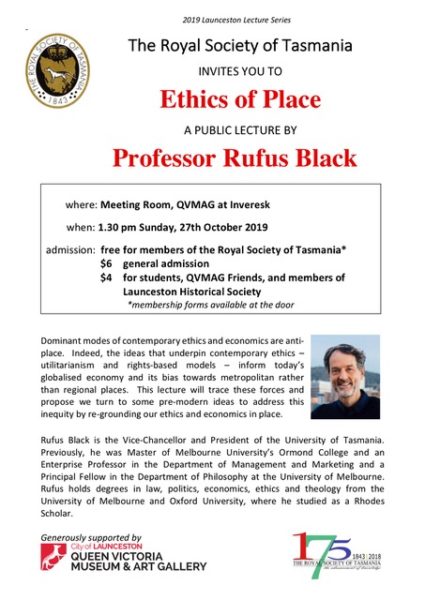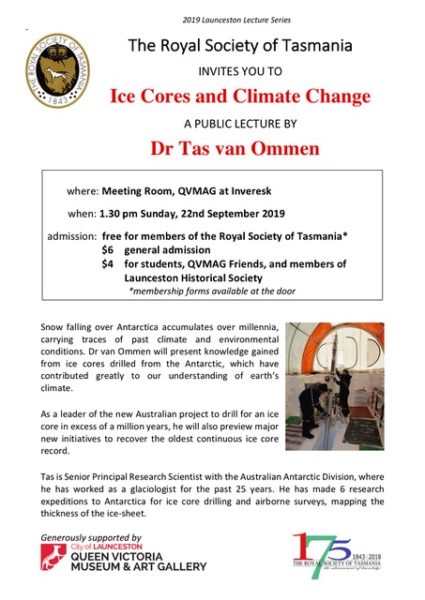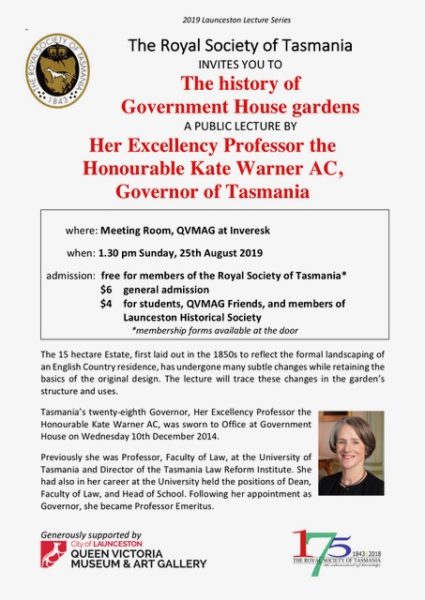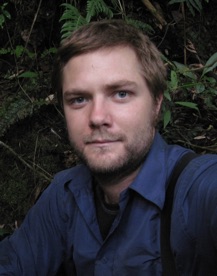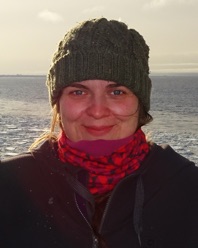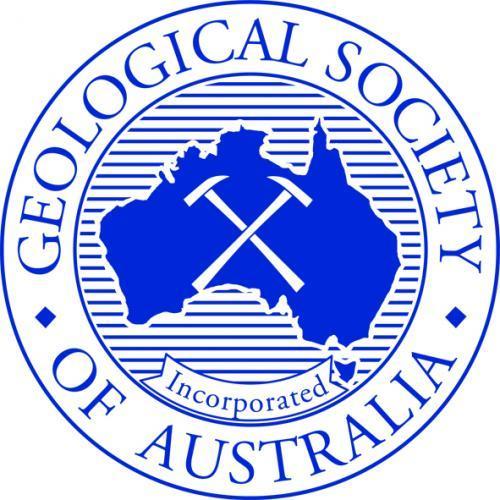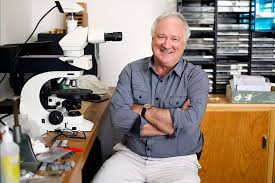LECTURE MEETINGS ARE POSTPONED UNTIL FURTHER NOTICE. DIGITAL LECTURES ARE PLANNED. CHECK BACK FOR UPDATES.
The Northern Chapter of the Royal Society of Tasmania is pleased to present the 2020 Calendar for the Launceston Lecture series, Queen Victoria Museum and Art Gallery, Inveresk.
The program commences on 23 February 2020.
A few dates are still to be finalised so please check back for updates.
